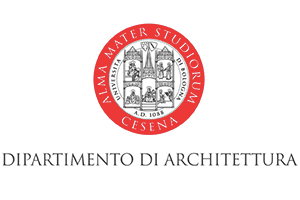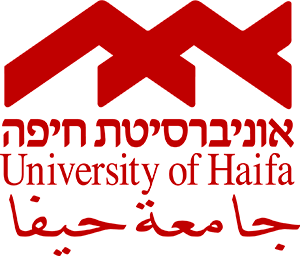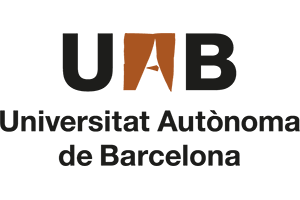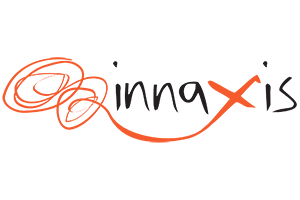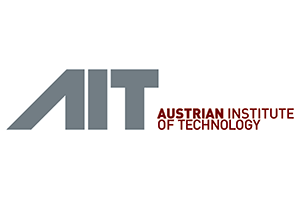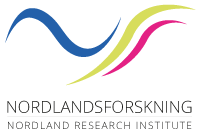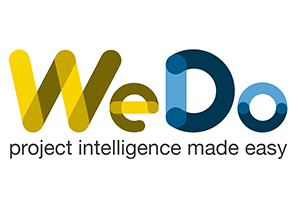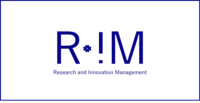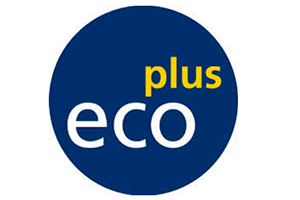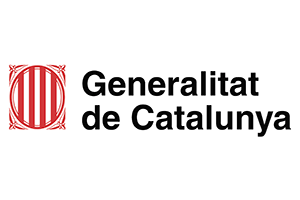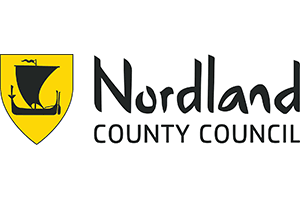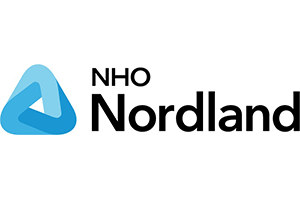The SeeRRI project
SeeRRI is a joint project of 12 partner organizations from five countries, financed by the European Union under the Horizon 2020 programme. In SeeRRI we are developing a framework for integrating the principles of Responsible Research and Innovation (RRI) into regional Smart Specialisation policy. In a nutshell, we want to find a new way for all actors to collaborate in research and innovation activities based on a responsible mindset. While doing so, we are also implementing the principles of RRI in our own organizations.
Introduction
Innovation is the engine of growth, for business as well as for society. A research and innovation ecosystem is vital to the long-term development of any geographic region. But such an ecosystem is complex. It involves a broad range of sectors and actors, including industry and business, academia, policymakers, and the public. Different groups have different interests and priorities when it comes to research and innovation. How can they all be brought together to work toward common goals? What can be done to make sure that research and innovation is conducted in a responsible manner so that it will benefit everyone in society?
This is a difficult question, and the answer might not be the same for every region; after all, each region has its own unique features. But perhaps a general framework could help regions find the answer to the question themselves? Such a framework would provide a set of core principles and a roadmap that regions could use for guidance in their quest to develop a sustainable research and innovation ecosystem. SeeRRI aims to develop a framework of this kind based on the principles of responsible research and innovation, or RRI.
Project objectives
To establish a foundation for building self-sustaining R&I ecosystems.
To implement a new R&I working method at the organizational level in a territorial context.
To share learning and transfer governance innovation best practices.
To engage relevant R&I stakeholders in a meaningful way during the process.
To evaluate activities carried out in the course of the project and contribute to MoRRI indicators and SDGs.
To establish a foundation for building self-sustaining R&I ecosystems.
To engage relevant R&I stakeholders in a meaningful way during the process.
To implement a new R&I working method at the organizational level in a territorial context.
To evaluate activities carried out in the course of the project and contribute to MoRRI indicators and SDGs.
To share learning and transfer governance innovation best practices.
Key concepts in SeeRRI
Responsible Research and Innovation (RRI)
RRI is an approach to research and innovation that emphasizes inclusiveness, transparency, anticipation, and responsiveness. RRI seeks to ensure that all actors in society who will be affected by research and innovation have a voice in deciding how it is carried out, and to what end. The European Union has defined five dimensions of RRI that especially need attention: public engagement, open access, gender equality, ethics, and science education.
To create a framework for integrating RRI into regional innovation policy, SeeRRI applies the RRI approach itself. That means involving a wide range of actors in the creation process. Three European territories have been selected as pilot regions for the project – the B30 Area in Spain, the Polymer and Mechatronic Cluster in Austria, and Nordland County in Norway. The three territories have one thing in common: local policymakers have adopted an innovation policy based on RIS3.
RIS3
RIS3 is an acronym that stands for Research and Innovation Strategies for Smart Specialisation. Endorsed by the European Union, RIS3 refers to an integrated approach to regional innovation policy in which the aim is to achieve “smart growth”, i.e. innovation-driven regional development that builds on the natural strengths of each region. The idea of SeeRRI is to integrate RRI into regional development policies, specifically those conceived with RIS3. The challenge of SeeRRI is to work with policymakers and other actors to figure out how best to achieve this.
SeeRRI quadruple-helix partners:
The SeeRRI consortium is a balanced, complementary, and transdisciplinary team with rich experience to draw on in achieving the objectives and vision of SeeRRI. The consortium consists of 12 partner institutions from three EU member states (Austria, Spain, Italy) and two associated countries (Norway, Israel). All of the “quadruple helix” is represented in the consortium: government (several regional government bodies), businesses (SMEs, an economic cluster), academia (research institutes, universities), and civil society (a confederation of enterprises). The partner institutions have been selected so that their combined expertise and capabilities meet the varied needs raised by the call.
Founded in 1088, the Università di Bologna (UNIBO) is known as the oldest University in the world, and UNIBO remains one of the most important institutions of higher education in Europe. The research unit involved in SeeRRI is part of the Department of Architecture (DA), which is highly regarded for its experience in the field of spatial planning and in integrating sustainability principles into planning tools.
The University of Haifa, established in 1972, is an academic institution whose central function is to carry out excellent academic teaching and research. The University provides the project with skills in the areas of policymaking and the application of user-centric systems for greater engagement of stakeholders, information-based technologies for economic development, and public engagement and citizen participation in science.
The Universitat Autònoma de Barcelona (UAB) was founded in 1968, with four principles of autonomy: freedom to select teaching staff, admission available to all students (but with a limited number), freedom to create its own study plans and freedom to administrate the University’s capital. The UAB committed itself early to the Responsible Research and Innovation (RRI) approach to encourage societal actors to work together during the research and innovation process.
The Innaxis Foundation & Research Institute is an interdisciplinary non-profit organization, founded in 2006 and based in Madrid and Brussels. Its aim is to build up relevant research and transformative innovations in the domain of large-scale socio-technical systems based on networks, by using the perspective and techniques of complex systems science, such as complex networks theory, systems dynamics, systems thinking, agent-based modelling, and simulation.
The AIT Austrian Institute of Technology is Austria’s largest non-university research institute. Among the European research institutes, it is a specialist in the key infrastructure issues of the future. The Center for Innovation Systems & Policy (AIT-ISP) can draw on a rich body of research oriented towards developing and testing new approaches to research and innovation in policy and corporate environments.
Nordland Research Institute (NRI), founded in 1979, is a private research institute in Bodø, Norway. NRI and Nordland County Council have a long tradition of discussing and developing responsible research in practice across a range of disciplines which are crucial to regional policymakers, such as welfare policy, environmental protection and sustainability, culture, tourism, and Smart Specialisation.
WeDo is a Barcelona-based company specializing in the management and communication of international, complex, and distributed research and innovation projects. WeDo works with a miscellany of stakeholders from both public and private sectors, applying a strategic, holistic, and lean project management approach to create an effective collaborative framework for results-driven decision-making and performance.
Research and Innovation Management GmbH (RIM) is an Austrian-based company that offers support in planning and developing pioneering projects. RIM addresses the future-oriented structuring of research and innovation in order to assist in overcoming new challenges. Sustainable resource management is a core competence of RIM.
The ecoplus Mechatronics-Cluster team in Lower Austria coordinates regional activities and initiates collaborative innovation projects in the smart specialisation domains of its region. With its long experience, ecoplus will enable exchange of experience in regional workshops and provide feedback to the policy recommendations in close collaboration with the regional government department for economy.
Catalonia’s smart specialization strategy focuses on the 3 vectors that will enable Catalonia to tackle successfully the great social and economic challenges of the 21st century: Industrial tradition, quality of life and circular economy.
The Lower Austrian Business Agency ecoplus is 100% owned by the Regional Government of Lower Austria. On behalf of the regional government, the ecoplus cluster is in charge of implementing the Lower Austrian Cluster Programme, which is an integral part of the region’s Smart Specialisation Strategy.
Nordland has a Smart Specialisation strategy that focuses on growth based on three strong innovation ecosystems: seafood, mineral production, and experience-based tourism.
The Confederation of Norwegian Enterprises – NHO – is the leading voice of business and industry in Norway. Having expert knowledge and an extensive business network, NHO plays an important role in Norwegian society.
NHO’s main objective is to create and sustain conditions that secure the competitiveness and profitability of business and industry, and thereby maintain the basis for a good standard of living, sound economic growth, and sustainable development. NHO brings to SeeRRI the experience of a civil society organization (CSO) representing companies and will help bring relevant companies to stakeholder workshops.
The SeeRRI approach
SeeRRI’s approach to building an adaptive, resilient ecosystem in a complex context using a responsible research and innovation approach is to construct a policy framework that includes both the smartness of Smart Specialisation and the sustainability and inclusion of RRI. The outcome of this will be a self-sustaining ecosystem.
The first step of SeeRRI is to identify key local actors in each territory. Then, the identified actors are invited to participate in workshops where they will work together with the SeeRRI partners and regional policymakers to formulate the details of the framework. In the third step, the framework will be implemented in practice in each of the pilot territories. The final task of SeeRRI will be to evaluate the implementation process and draw lessons about how the roadmap can be adapted to local contexts.
These steps will be implemented in 14 SeeRRI workshops aimed at bringing all relevant actors together in the process of integrating RRI into regional development policies for the purpose of building a self-sustaining R&I ecosystem.
Expected impact
But the impact of SeeRRI will not stop with the creation of three responsible territories and 12 responsible organizations. The involvement of a diverse range of actors in developing the SeeRRI framework gives the framework legitimacy and will facilitate its adoption beyond the pilot territories.
In the medium term, the five regions included in SeeRRI’s official Network of Affiliated Territories are expected to make use of the framework. In the longer term, we hope the knowledge generated by SeeRRI will strengthen the competitiveness and sustainability of regional economies across Europe and the world.
Specific Impacts:
Society
The main outcome of the SeeRRI project will be an integrated framework for building a self-sustaining R&I ecosystem that is open, transparent, and responsive. The framework will include a road-mapping tool for choosing the appropriate approach in a variety of different contexts. The co-creation approach during the stakeholder workshops supports awareness and knowledge creation and therefore sustainability. The framework defines a sequence of actions and an implementation roadmap for each SeeRRI territory and will be implemented in the three focal territories.
The impacts achieved by the project will be documented in the project final report. We expect these to include significant advances in implementing the RRI agenda in each of the participating organizations and territories as indicated by both the MoRRI and SDG indicators beyond the baseline measurements taken at the beginning of the project.
Stakeholders
In the process of developing an integrated framework of self-sustaining R&I ecosystems, SeeRRI will engage quadruple-helix actors and transfer learning across regions and countries. Physical and virtual platforms will be created for involving as many relevant actors as possible. In general, stakeholder engagement is an important element in introducing RRI openings throughout the project. A foresight process allows stakeholders to share their opinions, needs, expectations, wishes, and (when applicable) experiences with the implementation of RRI openings in R&I ecosystems. Moreover, foresight processes contribute to capacity building and networking within the stakeholder group.
Impact Application
The outputs of the SeeRRI project are expected to be institutional reforms of research and innovation systems in the territories participating in SeeRRI as well as among key members of the Network of Affiliated Territories (NAT) within five years of the conclusion of the project. In the focal territories of SeeRRI, reforms are facilitated through various platforms of co-creation, which are experimentally created, tested and validated as generalized frameworks. What will be disseminated as the outcome of the project is a validated integrated framework combined with methods of transnational learning into NAT members. There will be Open Innovation activities among SeeRRI’s expanded territories.
The Long-term Impacts
The long-term impacts are expected to be an enhanced contribution of RRI to tackling societal challenges in Europe, advances in the areas of open access, gender equality, and quality of education, as well as increased innovation capabilities in EU regions and thus increased innovation ecosystem resilience and stronger EU competitiveness in the world. The implementation of the SeeRRI framework will lead to better engagement of citizens and the public, which will lead to greater social acceptance of R&I in EU and more synergies and complementarities between R&I policies and smart specialisation strategies through diffusion of best practices and methods for R&I integration and innovation, including open access, gender equality, and increased quality of education throughout the EU and its associated countries.
Society
The main outcome of the SeeRRI project will be an integrated framework for building a self-sustaining R&I ecosystem that is open, transparent, and responsive. The framework will include a road-mapping tool for choosing the appropriate approach in a variety of different contexts. The co-creation approach during the stakeholder workshops supports awareness and knowledge creation and therefore sustainability. The framework defines a sequence of actions and an implementation roadmap for each SeeRRI territory and will be implemented in the three focal territories.
The impacts achieved by the project will be documented in the project final report. We expect these to include significant advances in implementing the RRI agenda in each of the participating organizations and territories as indicated by both the MoRRI and SDG indicators beyond the baseline measurements taken at the beginning of the project.
Stakeholders
In the process of developing an integrated framework of self-sustaining R&I ecosystems, SeeRRI will engage quadruple-helix actors and transfer learning across regions and countries. Physical and virtual platforms will be created for involving as many relevant actors as possible. In general, stakeholder engagement is an important element in introducing RRI openings throughout the project. A foresight process allows stakeholders to share their opinions, needs, expectations, wishes, and (when applicable) experiences with the implementation of RRI openings in R&I ecosystems. Moreover, foresight processes contribute to capacity building and networking within the stakeholder group.
Impact Application
The outputs of the SeeRRI project are expected to be institutional reforms of research and innovation systems in the territories participating in SeeRRI as well as among key members of the Network of Affiliated Territories (NAT) within five years of the conclusion of the project. In the focal territories of SeeRRI, reforms are facilitated through various platforms of co-creation, which are experimentally created, tested and validated as generalized frameworks. What will be disseminated as the outcome of the project is a validated integrated framework combined with methods of transnational learning into NAT members. There will be Open Innovation activities among SeeRRI’s expanded territories.
The Long-term Impacts
The long-term impacts are expected to be an enhanced contribution of RRI to tackling societal challenges in Europe, advances in the areas of open access, gender equality, and quality of education, as well as increased innovation capabilities in EU regions and thus increased innovation ecosystem resilience and stronger EU competitiveness in the world. The implementation of the SeeRRI framework will lead to better engagement of citizens and the public, which will lead to greater social acceptance of R&I in EU and more synergies and complementarities between R&I policies and smart specialisation strategies through diffusion of best practices and methods for R&I integration and innovation, including open access, gender equality, and increased quality of education throughout the EU and its associated countries.
![]() This project has received funding from the European Union’s Horizon 2020 research and innovation programme under grant agreement nº 824588.
This project has received funding from the European Union’s Horizon 2020 research and innovation programme under grant agreement nº 824588.
